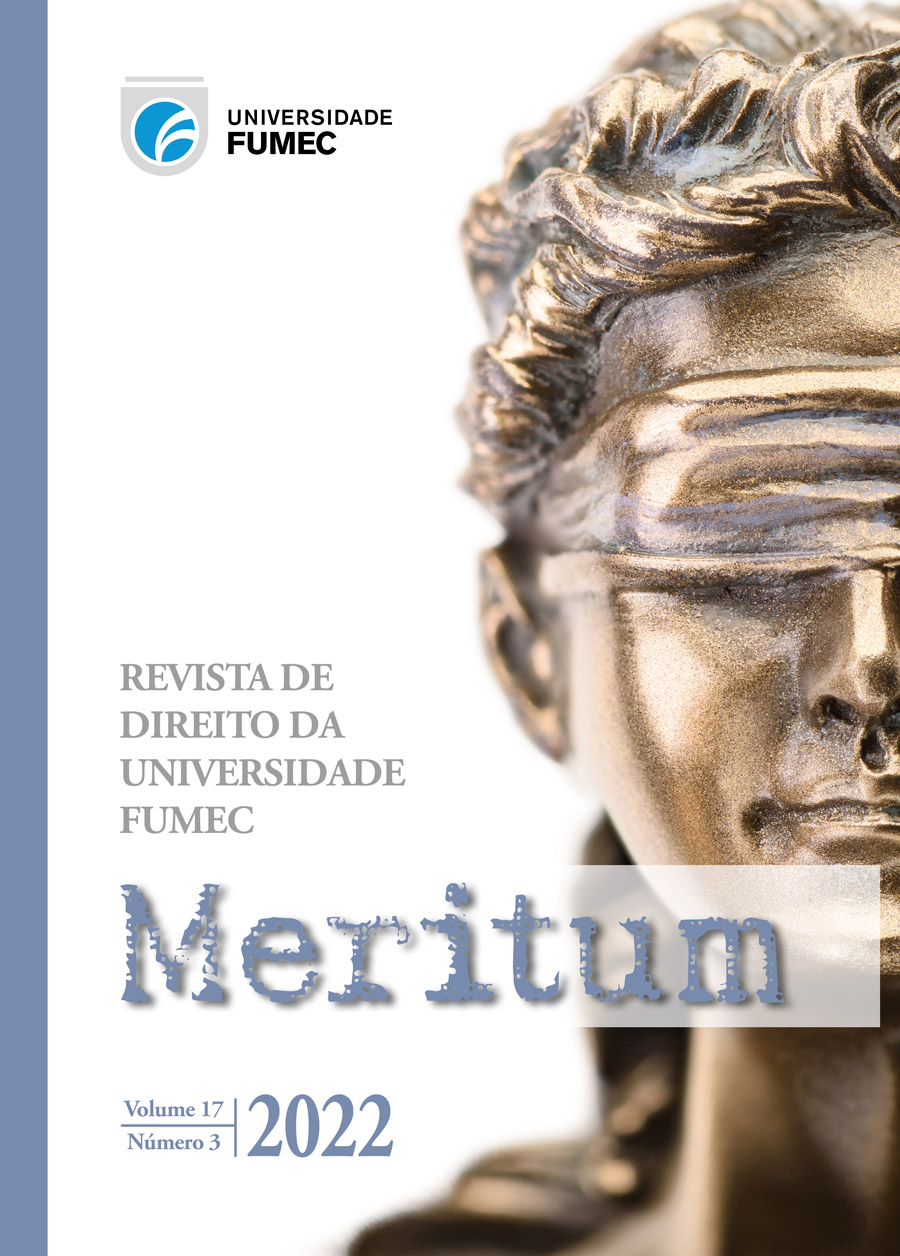A ADOÇÃO INTERNACIONAL COMO ÚLTIMO RECURSO NA PERSPECTIVA DA JUSTIÇA DISTRIBUTIVA
DOI:
https://doi.org/10.46560/meritum.v17i3.8543Abstract
The article deals with the international adoption and the principle of the superior interest of the child, in the sense of the construction of his rational plan of life. This article aims to analyze the international adoption from distributive justice in the perspective of self-esteem for the construction of its life plan in accordance with the principle of the best interest of the child. The article discusses whether with the current Brazilian legislation, where international adoption is regulated as a last resort, it is possible to attend to the child's superior interest in the perspective of distributive justice. In order to reach the presented results, the methodology used was bibliographic research through deductive method. It began with the principles governing international adoption, with emphasis on Brazilian legislation and the legal principles of the 1993 Hague Convention on the Protection of Children and Cooperation in International Adoption, followed by international adoption in the perspective of the Distributive Justice and of the superior interest of the child, due to the fundamental right to the family.
Downloads
Published
Issue
Section
License
Autores que publicam nesta revista concordam com os seguintes termos:
- Autores mantém os direitos autorais e concedem à revista o direito de primeira publicação, com o trabalho simultaneamente licenciado sob a Licença Creative Commons Attribution que permite o compartilhamento do trabalho com reconhecimento da autoria e publicação inicial nesta revista;
- Autores têm autorização para assumir contratos adicionais separadamente, para distribuição não-exclusiva da versão do trabalho publicada nesta revista (ex.: publicar em repositório institucional ou como capítulo de livro), com reconhecimento de autoria e publicação inicial nesta revista;
- Autores têm permissão e são estimulados a publicar e distribuir seu trabalho online (ex.: em repositórios institucionais ou na sua página pessoal) a qualquer ponto antes ou durante o processo editorial, já que isso pode gerar alterações produtivas, bem como aumentar o impacto e a citação do trabalho publicado (Veja O Efeito do Acesso Livre).






